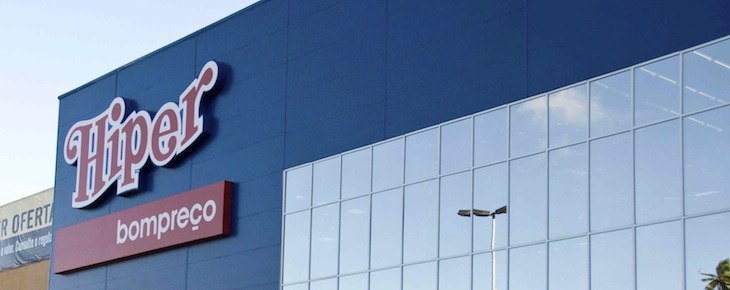Wal-Mart reportedly looking to sell half of its stake in Brazil
by January 23, 2018 4:35 pm 844 views

Private equity group Advent is reportedly in talks to acquire a 50% stake of Wal-Mart’s holdings in Brazil, according to news reports in that country. The retail giant has struggled to win market share in the highly competitive market of Brazil, ranking third after continued investment, several management changes and attempts at restructuring.
Reuters also reports Wal-Mart is being advised by Goldman Sachs who is helping the retailer sort through the possibilities with at least two other firms are also interested in Wal-Mart’s holdings.
Wal-Mart operates 485 stores (including Sam’s Clubs) in Brazil since first investing there in 1995, according to its website. As recent as October, Wal-Mart said it was pouring $316 million in Brazil through fiscal year 2019 to update about 120 of its stores under the banners Hypermarket Bompreco and BIG. To date, about 25% of that work has been completed, according to Walmart International.
The move to sell comes as no surprise. Talk Business & Politics previously reported the issues and lack of growth in Brazil over the past 22 years. Wal-Mart Stores CEO Doug McMillon told investors in October 2016 the company was evaluating its international holdings and there would be instances of restructuring, investments and in some cases pulling out of markets and areas not core to the company’s overall success.
In December 2016, Wal-Mart closed 60 of its weakest performing stores, which accounted for about 5% of sales in Brazil. As far back as 2015, analysts were predicting Wal-Mart would divest some of its assets in South America, namely Brazil.
Wal-Mart posted operating losses in Brazil for seven years in a row after an aggressive, decade-long expansion left it with poor locations, inefficient operations, labor troubles and uncompetitive prices. In the past two years, the country has been in a recession and sales have not improved to suit the retailer. Serasa Experian, the credit data firm in Brazil, reported that holiday sales for the country rose 5.6% higher in 2017 than the prior year, evidence the economy is starting to improve.
Clint Lazenby, co-founder of #OnShelf, told Talk Business & Politics Wal-Mart’s struggles in Brazil were years old. He said French retailer Carrefour and Grupo Pay de Acucar are the dominant players in Brazil. He said the retailer would have likely pulled out a few years back but there were no suitors interested in the tough market. Lazenby said many challenges Wal-Mart faces are out of its control such as the business structure and geography that prevent Wal-Mart from consolidating its three separate divisions located in the north, central and southern parts of the country.
He also said some of the retailer’s stores are not in the greatest condition, while Carrefour and Grupo Pay are adding stores. Lazenby said there are other challenges for Wal-Mart in Brazil with regard to its Everyday Low Price strategy which is at odds with the highly promotional business models run by competitors that feature blue light specials on the hour and lots of excitement in retail centers.
Lazenby also said the fragmented divisional structure of Walmart Brazil has kept the retailer from leveraging a national supply chain and distribution grid to its advantage. He said, like India, it’s virtually impossible for Wal-Mart to scale a business in Brazil without a local partner.
The retailer intends to keep a stake in the Brazilian unit to be able to recoup part of its losses in the country later if an economic recovery and restructured operations boost results, according to Reuters.
Wal-Mart made a similar deal in China when it sold its e-commerce business and took a stake in JD.com because tacking the market on its own proved slow amid competition from Alibaba and JD.com.
